 Anna Hyvärinen
Anna Hyvärinen- Human Rights Expert
- The Ecumenical Council of Finland / Ekumeniska Rådet i Finland
translated from Finnish by Google Translate
Brian Grim, Director of the Religious Freedom and Business Foundation (RFBF), an NGO promoting freedom of religion or belief in business, visited Finland on 7-8 September, 2017, under the auspices of the Finnish Ecumenical Council. During the visit, Grim met with officials from the Ministry of Foreign Affairs, the Syria Specialist Mission, FIBS representatives, a representative of the Peace Network for Traditional and Religious Operators of the Church, and officials of the Ministry of Employment and the Economy.
Brian Grim has previously created the World Religious Freedom Report of the Pew Research Center with its research methods. Read the latest report here. Subsequently, inspired by the Fellowship Society, he began to look for practical methods to promote religious freedom. This was the creation of the Religious Freedom and Business Foundation.
Business promises, business leaders who promote peace between religions and empowerment
Religious Freedom and Business Foundation The RFBF has had several projects, most notably the Corporate Pledge, Global Awards, Empowerment +, Research and High-Level Forums . The promise of an undertaking commits the companies to make a promise that promises their actions to take and promote the freedom of religion or belief. Global prizes are awarded to business leaders who have successfully promoted understanding and peace between religions in conjunction with both summer and winter Olympics. In 2018, the awards will be held in South Korea during the Paralympic Games.
In theEmpowerment + Project in England, Manchester, religious leaders mentored socially excluded young people and immigrant youth, together with other coaches, in working life. This course teaches work life skills, entrepreneurship, social service and respect for the different religions. For example, when the Muslim leader is driven by a Jewish successful businessman, the desire to learn lies ahead of the prejudiced ideas. This is how the young person grows up to respect other religions.
At the end of the course, young people set up small businesses, such as eating wagons. As a social service, the courtiers had cleaned in the area of the hated mosque courtyard, with pesky picks. A key part of the course is to learn to use one’s religion as a spiritual resource, not as an instrument of hatred and violence.
The program also includes a Launching Leaders course, where future leaders, ie students, are bred to leadership and the encounter of religions. Empowerment + course materials are also available for use in other countries. The project was widely featured in discussions with the KUA’s Traditional and Religious Operators Peace Network Representative.
Religions appear in everyday business
Brian Grim arrived in Finland directly from Brussels, where he was speaking at the European Parliament’s two-day seminar. The corporate responsibility was discussed at the seminar. Contrary to what many people often think, many companies have a lot of experience not to encounter religions, to arrange working conditions in multi-faceted workplaces, and to different social responsibility issues. Often, business life requires only a different approach to what human rights experts are accustomed to. However, the international big companies involved in the seminar had realized that taking into account the everyday circumstances of religious freedom (religious dress, religious activity, religious holidays), the whole business function went better and the employees committed themselves to motivated work.
In the Corporate Responsibility Network FIBS Grim discussed, among others, how businesses can operate in religious or religious beliefs and in countries with strong human rights, while retaining their conscience about responsible behavior. Where is the point to be stretched, where are the boundaries drawn? Together, it was concluded that it would be good to organize the subject of training and joint reflection events. It is also interesting how businesses can, through their business activities, promote freedom of religion or belief in society and those who suffer from religious freedom, this important element of the RFBF agenda.
Meetings at ministries
In the Foreign Ministry, human rights and business are a rising theme. Many Finnish diplomatic missions around the world are oriented towards promoting Finnish trade and other business activities. It was therefore refreshing to talk about how freedom of religion and business foster each other, and what kind of innovative projects there is in this area.
Integration experts were met at the Ministry of Employment and the Economy. Together, we considered why religions still play a role in our society and how they are reflected in the ministry’s work. At the same time, the need for religious literacy and freedom of religion or belief were discussed. Grim presented RFBF projects, which could also benefit the ministry’s work.
Youth employment
There was talk of a variety of issues with the Syria Specialist. The leading theme was the employment of immigrant youth, which was again linked to the Empowerment + project. Ideas and experiences changed swiftly at the dinner table.
From theory to practice
The best way to understand RFBF was to become acquainted with its creative inventiveness, with the organization developing entirely new ways to promote human rights. Experts tend to think things through difficult theoretical or international terms of contract. RFBF is in violation of these boundaries with their concrete, work-oriented and popular projects.


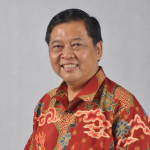
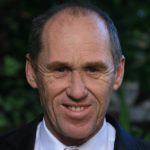
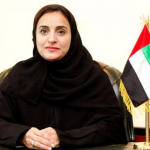

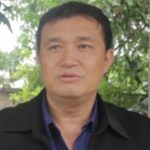



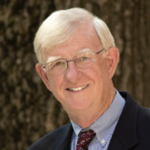

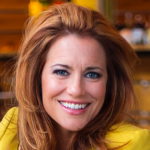
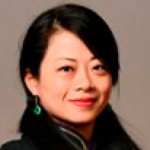




 The Emirati capital of Abu Dhabi is due to host the fourth round of the Forum for Promoting Peace in Muslim Societies December 11-13 . The Forum is held under the patronage of Emirati Minister of Foreign Affairs and International Cooperation Sheikh Abdullah bin Zayed Al Nahyan.
The Emirati capital of Abu Dhabi is due to host the fourth round of the Forum for Promoting Peace in Muslim Societies December 11-13 . The Forum is held under the patronage of Emirati Minister of Foreign Affairs and International Cooperation Sheikh Abdullah bin Zayed Al Nahyan.